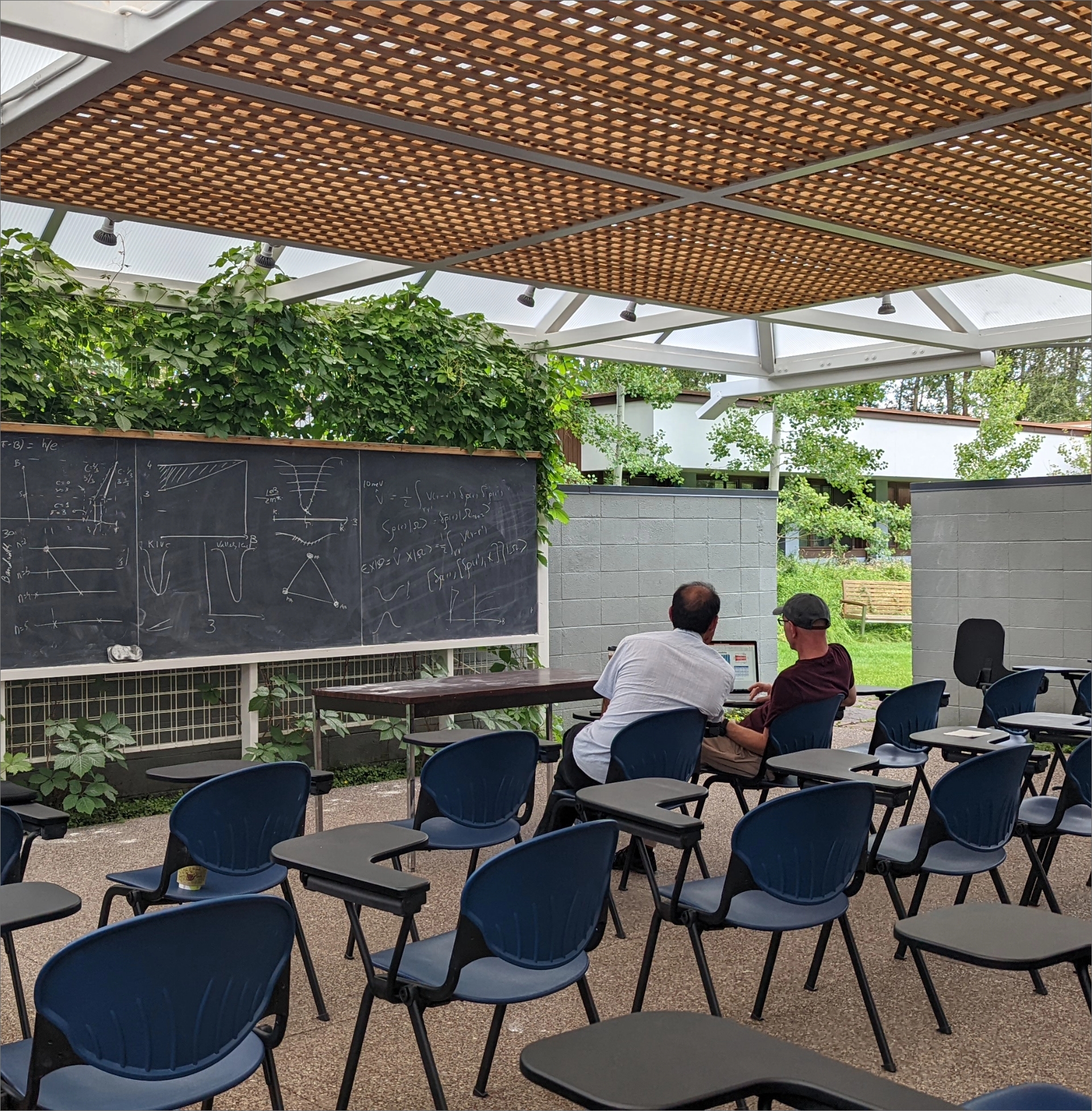
Summer Program
Statistical Physics and Adaptive Immunity
August 6–27, 2023
Organizers:
Vijay Balasubramanian, University of Pennsylvania
Serena Bradde, City University of New York
*Curtis Callan, Princeton University
Andreas Mayer, University College of London
Armita Nourmohammad, University of Washington
To defend against threats from rapidly evolving pathogens organisms across the tree of life make use of adaptive immune mechanisms, which specifically target pathogens through a learning-and-memory approach. Vertebrates implement such rapid adaptation in their adaptive immune system, which produces diverse antibodies and T cells through genetic recombination, and then selects effector and memory cells when they bind to invaders. Likewise, some bacteria and archaea maintain snippets of previously encountered phages in their genomes to identify recurring infections via the CRISPR-Cas system.
Over the last decade, statistical physicists have made significant contributions to the theory of adaptive immunity, from first principles mastery of the sequence level statistics of the players in vertebrate immune system, to theories of the diversity and organization of CRISPR immune repertoires. With rapid advances in data collection at scale and a rapidly expanding body of theoretical work, now is an opportune time to bring together experimentalists and theorists. We will discuss questions and progress guiding the field, and will chart a path forward to understanding the dynamics of the whole coupled system of defenders, invaders, and their coevolution. We will also discuss where results from our nascent field are having an impact in biology, medicine and biotechnology, and how we can further such broader interactions.
*scientific advisor
Summer Workshops
The summer program, running for 16 weeks from late-May to mid-September, emphasizes exciting open problems at the cutting edge. Two or three concurrent workshops, each with a specific focus selected for timeliness and the potential for breakthroughs and of two to five weeks in length, establish the main themes of each week, with twelve or thirteen different workshops each summer, balanced across fields including particle physics, string theory, astrophysics and hard and soft condensed matter physics, as well as emerging areas including biological physics, ultra-cold atom physics, quantum information, and physical mathematics. Additional researchers participate in small working groups or as individual researchers. This framework is designed to maximize informal interactions and free discussion within each area and to promote cross-fertilization between different areas via the common language of theoretical physics. Participation in the summer program of the Aspen Center for Physics is by application and subsequent invitation only. View past workshops.
